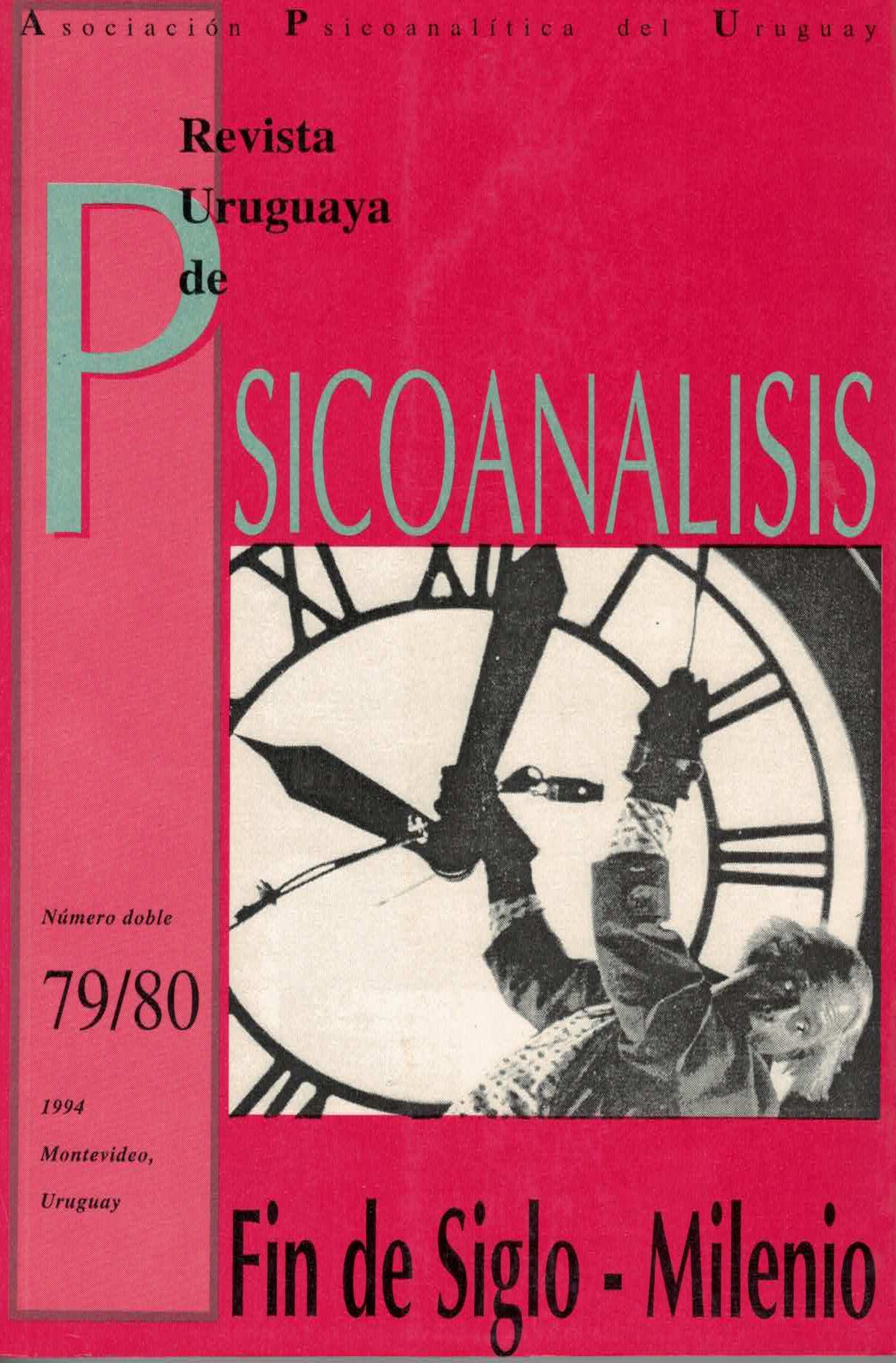Paternal role in the family at the end of the millennium.
Keywords:
estructura familiar, función paterna, diferencia de los sexos, mujer, homosexualidad, antropologíaAbstract
Some of the significant changes that have taken place in the family structure are pointed out, taking into consideration reflections from anthropology and sociology.The paternal symbolic function is a nodal element in that structure, since it greatly determines the son‟s ordaughter‟s psychic structuring.The social declination of paternity (social orfamiliar) alluded to by sociologists, historians and jurists is considered so as to determine its possible impact on the paternal symbolic function from the perspective of psychoanalysis. Both the father‟s excess or shortage of power are seen as a problematization of that function.Other elements coming from the social collective add to the blurring of differences (man-woman). The difference of genders and the symbolic castration that imply the psychic structuring with a prevalence of repression upon denial are essential pieces that the paternal function provides so as to give rise to the subject (the unconscious) We putforward reflections on this function and on the importance of the man‟s positioning vis á vis te woman‟s desire.We alsoinsist upon the need for reviewing our theory together with the contributions of other sciences so as to give account of the remarkable and revulsive changes we are undergoing at the end of this millennium. It is in this complex scope of ourview of man‟s social and cultural changes that the psychoanalytic discourse, with no certainty whatsoever, commits us to ajoint search and reflection.Downloads
References
ABBAGNANO, Nicola: Diccionario de Filosofía, Editorial Fondo de Cultura Económica, México D.F., México, 1987.
ARIES, Philippe: Reflexiones en torno a la historia de la homosexualidad. En: Sexualidades occidentales. Ed. Paidós Studio, Bs. Aires, Argentina, 1987.
CASAS DE PEREDA, Myrta: Lo femenino en lo maternal.Función de enigma. Compilación M. Lemlij., Lima, Perú (En prensa).
CASTORIADIS, Cornelius: La Institución imaginaria de la sociedad. Ed. Tusquets, Barcelona, España. 1983. Citado por A. Ma. Fernández en: La mujer de la ilusión, Ed. Paidós, Bs. Aires, Argentina, 1993.
DUBY, Georges: L‟amour n‟est plus ce qu‟il était~ En: L‟histoire:L‟amour et la sexualité Nº 63, Paris, France, lºtrimestre 1984.
DUBY, Georges: Prefacio a Tiempos Medievales. En: Historia de la Familia. T.I, Alianza Editorial, Madrid, España, 1988.
ERGAS, Yasmine: El sujeto mujer: el feminismo de los años setenta-ochenta. En: Historia de las mujeres. Ed. Taurus, Madrid, España, 1993.
FERNANDEZ, Ana Ma.: La mujer de la ilusión.Ed. Paidós, Bs. Aires, Argentina. 1993.
FREUD, Sigmund: TotemyTabú(1913, 1912-13) ObrasCompletas T. XIII, Amorrortu Editores, Bs. Aires, Argentina, 1976
.JULIEN, Philipe: Le manteau de Noé. Essaisur la paternité. Micromégas”, Desclée de Brouwer, 1991.
LE GAUFEY, Guy: L‟incompletude dusymbolique. Ed. E.P.E.L., Paris, France, 1991.
LEVI-STRAUSS, Claude: Las estructuras elementales de parentesco. Ed. Paidós, Bs. Aires, Argentina, 1969.
LEVI-STRAUSS, Claude: Lafamilie. En: Le regard éloigné, 1983. Citado por Françoise Zonabend en: “De la familia. Una visión etnológica del parentesco yla familia”. En: Historia de la familia.Torno 1. Alianza Editorial. Madrid, España, 1988.
LEVI-SRAUSS, Claude: Prólogo. En: Historia de la familia, T.l, Alianza Editorial, Madrid. España, 1988.
MC DOUGALL, Joyce: Teatros de la mente. Ed. Tecnipublicaciones, Madrid, España, 1987.
MOREIRA,Hilia: Cuerpo de Mujer. Reflexión sobre lo vergonzante. Ed. Trilce. Montevideo, Uruguay, 1994.
POLLAK, Michael: La homosexualidad masculina o ¿la felicidad en el ghetto? En: Sexualidades occidentales. Ed. Paidós Studio, 1987.
ZONABEND, Françoise: De la familia. Una visión etnológica del parentesco y la familia. T. I, Alianza Editorial, Madrid, España, 1988.



 This work is licensed under a
This work is licensed under a 